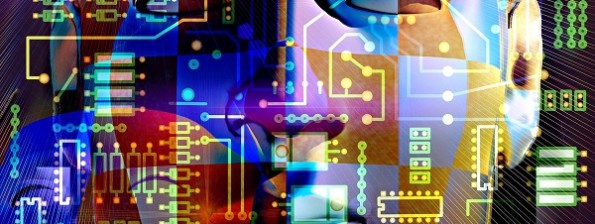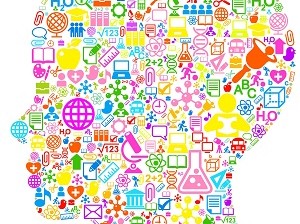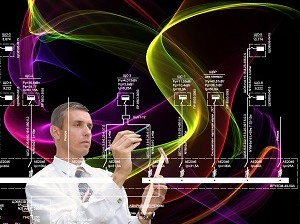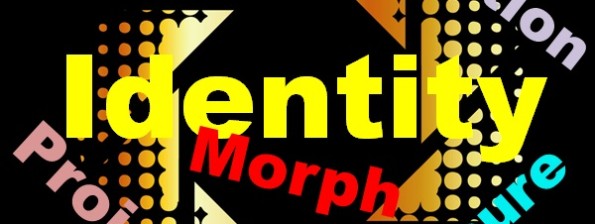Tag Archives: fuzzy logic
08 Sep Gnostic Learning Model

In prior posts in this section, and periodically in other sections of my blog, I have been exploring how humans learn, and how we might replicate those processes in computer software or (less likely) hardware. The context of the learning, or knowledge acquisition, upon which I choose to focus is language learning. While knowledge acquisition is much broader, this is an […]
28 Aug Weight Control for Knowledge

Stochastic Models Data, information and knowledge may be stored in many different ways in computers. Most artificial neural models rely heavily on stochastic or probabilistic techniques for establishing the internal structure that represents the data. The generalized delta rule for adaptation is an example of this sort of technique. The generalized delta rule, developed by D.E. […]
28 Jul Patterns in the Mind

As we look for suitable solution designs for representing the knowledge and processes we humans use to communicate, we realize that we have no idea what knowledge in the brain looks like. Further, we only have relatively vague ideas about the processes that occur in the brain as we produce and comprehend words, phrases and sentences. […]
26 Jul Parallel Distributed Pattern Processing

PDP Networks We have discussed recognition processes in the brain. Connectionism, a fundamentally implicit approach to neural modeling, was championed by the parallel distributed processing (PDP) group. PDP networks use many interconnected processing elements (PEs) that, according to the PDP Group, configure themselves to match input data with “minimum conflict or discrepancy” (Rumelhart & McClelland, 1986, Vol. 2, […]
15 Jul From Perception and Learning to Logic

Perception and Learning I am not a cognitive scientist, so all I have said in this section is based on the work of others. On the other hand, I have probably spent more time seriously studying cognition than most computer geeks, and I have tried to form my perspectives around the best of our knowledge. The […]
08 Jul Playing the Slots

Frames and More You could just throw everything into the blender and see if a nice smoothie comes out. But for some cuisine and some complex processing tasks, the blender model is unsatisfactory. With neural networks and semantic networks and concept graphs, it may be best to separate things by category, choose different blender speeds, […]
07 Jul SPARQL Fireworks

How do you get at knowledge in conceptually structured information stores such as graphs? There are multiple ways to get data and information in broad use today. The most common is Structured Query Language (SQL) which is used as the almost universal access formalism for getting, storing and manipulating data in relational databases. An emerging standard […]
01 Jul Chaos About Us

Chaos About Us Chaos is all about us. I know that for certain each time I look into my kids’ rooms. When I recall my own youth, however, it occurs to me that I had a reason for the way I organized my life. It seemed meaningful to me, and although I recall how difficult it was […]






